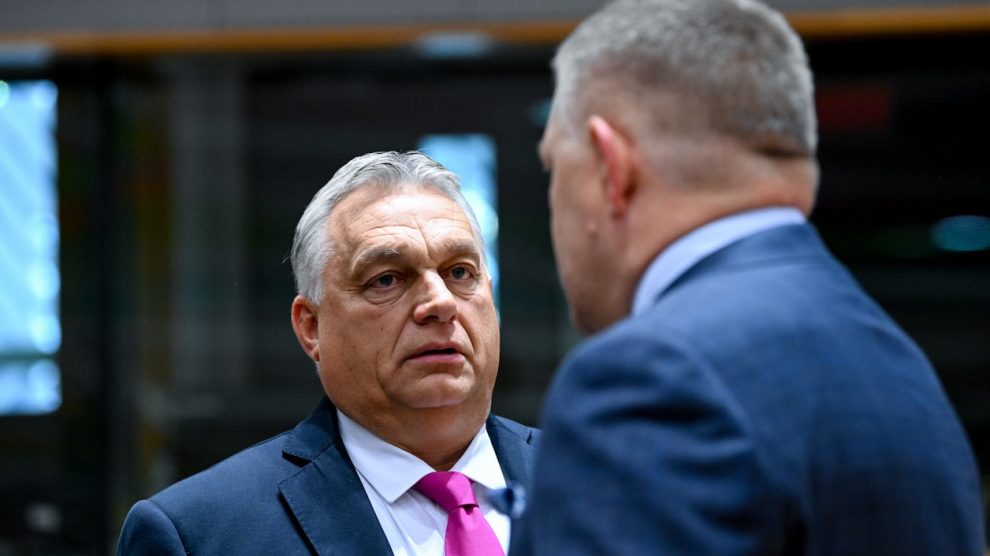Robert Fico’s latest term as Slovakia’s prime minister is likely to be marked by the incompetence and irresponsible governance that marked those of the past, writes Ivan Mikloš, a former deputy PM and minister of finance.
Where do I see Slovakia in 2030? Predicting social and economic development six years ahead is a tricky thing. It is a relatively long period, and these developments can be influenced by many domestic, European, and global circumstances that are largely unpredictable. Slovakia is a small, extremely open economy, which is also due to its enormous dependence on developments in the external environment.
- The EU has been very good for emerging Europe
- CEE as the economic heart of Europe
- What can the EU do about its Viktor Orbán problem?
I will thus assume the following. We will not be facing any major external shocks on the supply or demand side, inflation and the price of money will gradually fall, although not to the extremely low levels of the pre-pandemic and pandemic periods. Nor will there be a fundamental deterioration in the geopolitical situation and geopolitical tensions.
Slovakia’s internal conditions are much easier to forecast for the horizon of the next six years. The main reason is the four-year period of Robert Fico’s fourth government which has just begun. Since he has already ruled three times, there is a high probability of a similar government to the one we have witnessed in the past. One of incompetent and irresponsible governance. Governance which resulted in Slovakia falling in all the important rankings such as economic level, competitiveness, business environment, innovation, education, healthcare, and so on.
Slovakia then and now
There are only two fundamental differences from the previous terms of office under the leadership of Robert Fico.
The first is that while in the past he tried not to stray too far from the European mainstream, he won his current mandate by anti-system radicalisation. And although he does not proclaim an explicit rejection of liberal democracy and an orientation towards building an illiberal democracy like Viktor Orbán, he implicitly pursues a very similar policy in terms of his relationship with the EU, migration, Russia’s war against Ukraine, but also in terms of controlling institutions that should be independent in a liberal democracy (police, prosecutors, courts, public media, NGOs).
Politically, Viktor Orbán has gained a strong ally in Robert Fico. Fico himself professed this during his visit to Budapest in mid-January.
The second difference of the “fourth Fico” is that after the rule of the coalition led by Igor Matovič (2020-23) he has for the first time inherited an economy in visibly bad shape.
This particularly concerns the state of public finances, but also all the important areas mentioned above. The reason for this is the gradual evaporation of the effect of the reforms of the two governments of Mikuláš Dzurinda (1998-2006) and the irresponsible and incompetent policy of inaction and cancellation of the reforms by the three previous Fico governments, as well as the chaotic governance of Matovič’s coalition. The latter did try to make amends in some areas, but mostly unsuccessfully, and regarding financial and budgetary irresponsibility, it did not lag behind Fico in any respect.
That is why Slovakia today has the highest public deficit in the EU, and the long-term sustainability of public finances is also among the worst.
No attempt to consolidate public finances
Moreover, economic policy is the only important area where Fico does not take his cue from Orbán. While Orbán, after coming to power in 2010, consolidated public finances in a broadly correct way (increasing indirect taxes and reducing direct taxes), Fico is not even trying to consolidate public finances.
Despite an extremely high deficit last year (6.1 per cent), this year’s deficit will be even higher (6.3 per cent). The government is increasing pensions, subsidising energy across the board, and increasing the already high direct taxes and levies in tax policy.
As there is rather strong inertia in the economy and the policy change will be reflected in a reversal of the economic development with a lag of at least two years, we can conclude that a reversal of the current and previous negative trend in the development of the Slovak economy is unfortunately unlikely in the next six years.
Photo: Viktor Orbán and Robert Fico at a European Council meeting in October. © European Union.
Unlike many news and information platforms, Emerging Europe is free to read, and always will be. There is no paywall here. We are independent, not affiliated with nor representing any political party or business organisation. We want the very best for emerging Europe, nothing more, nothing less. Your support will help us continue to spread the word about this amazing region.
You can contribute here. Thank you.







Add Comment